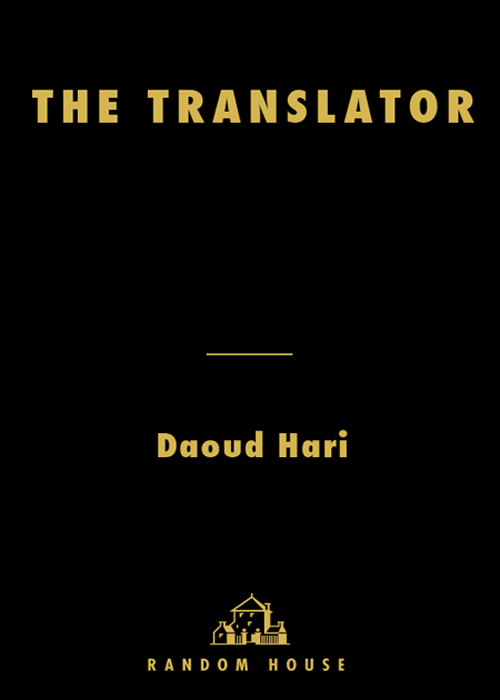
The Translator
A Tribesman's Memoir of Darfur
کتاب های مرتبط
- اطلاعات
- نقد و بررسی
- دیدگاه کاربران
نقد و بررسی

Starred review from April 28, 2008
Hari's harrowing and stunning memoir recounts life in the Sudan during one of the most widely neglected and horrifying events in human history. Mirron Willis brings a subtle reality to the touching story through his simple yet incredibly understated performance. Read with a just-right Sudanese dialect, Willis becomes Hari from the very beginning, bringing listeners into the story slowly by relating the beauties of his former home before the helicopters arrive late one night in 2003. The result is a story of survival in the midst of an intense genocide, heartbreaking yet stunningly uplifting. Willis speaks directly and captivatingly to his listener. This is an important story that speaks to everyone. Simultaneous release with the Random House hardcover (reviewed online).

Starred review from March 3, 2008
"Unique," a word avoided by most journalists, is just the first to describe this heart-stopping memoir, written by a native Darfuri translator who, after escaping the massacre of his village by the genocidal Janjaweed, returned to work with reporters and UN investigators in the riskiest of situations. Taking readers far from their comfort zones, Hari charts the horrific landscape of genocide in the stories of refugee camp survivors: "It is interesting how many ways there are for people to be hurt and killed, and for villages to be terrorized and burned... I would say that these ways to die and suffer are unspeakable, and yet they were spoken: we interviewed 1,134 human beings over the next weeks." Danger is rampant, especially at border crossings, and the effect on outsiders is profound: "Some of the BBC people had to return to Chad, where they were in a medical clinic for three days to recover from what they saw, and smelled, and learned." Homey facts about the loyalty of camels, the pecking order in villages and vast family networks bring respite from more dire tales, including Hari's long, multi-site imprisonment with a U.S. journalist and their Chadian driver. The captives' endurance through uncertainty and torture is unbelievable, and their eventual rescue reads like James Bond by way of boldface politicos like recent presidential contender Bill Richardson. Throughout, Hari demonstrates almost incomprehensible decency; those with the courage to join Hari's odyssey may find this a life-changing read. A helpful appendix provides a primer on the Darfur situation.

Starred review from April 15, 2008
A Sudanese tribesman who has worked as a translator and guide for journalists reporting on the conflict in Darfur, Hari offers a moving account of his experiences in his troubled homeland, rendered in spare and direct prose. With quiet power and gripping immediacy, Hari eloquently describes the devastating genocide in Darfur and the resulting human suffering. Hari's dangerous mission as a translator was to give voice to the silenced victims of Darfur; with his memoir he continues this important work by clearly explaining and humanizing the causes and consequences of the conflict within the context of his own story. Even amid great personal danger and hardship, he steadfastly maintains an inspiring degree of compassion for all sides of the conflict, never wavering in his burning desire to raise worldwide awareness of the unchecked genocide in his homeland. This memoir raises fundamental questions about the global community's moral responsibility to act, leaving the reader with unsettling questions about humanity's capacity for evil. With parallels to works such as Paul Rusesabagina's "An Ordinary Man" (with Tom Zoellner) and John Bul Dau's "God Grew Tired of Us" (with Michael S. Sweeney), this wise and compelling autobiography is highly recommended for all public libraries.Ingrid Levin, Salve Regina Univ. Lib., Newport, RI
Copyright 2008 Library Journal, LLC Used with permission.

April 1, 2008
Daoud, a Zaghawa tribesman in northern Darfur, fled his village, which wasunder attack by Sudanese militiamen, in 2003. His brother was killed and his family driven into exile across Sudan. Lamenting the demise of old traditions that called for the settlement of disputes among ethnic groups with peaceable dinners in one anothers homes, Daoud fought back in his efforts as a translator to help document the carnage in his native land. In this first-person account, Daoud recalls imprisonment in Egypt, suffering in refugee camps, and efforts by ordinary Sudanese to hold onto families and hope in the face of genocide. Daoud worked as a translator for a British filmmaker and foraward-winning reporterswith theNew York Times, Chicago Tribune, andBBC. As a translator for UN investigators of genocide, Daoud listened to stories told slowly and quietly, feeling emotions the tellers dared not let themselves feel. Daoud writes beautifully and simply, offering insight, relaying the analysis of the reporters he worked with, and demonstrating the power of a man emotionally vested in the story being told.(Reprinted with permission of Booklist, copyright 2008, American Library Association.)

























دیدگاه کاربران